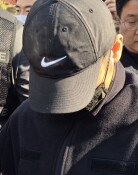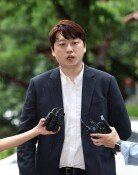New Japan leadership seeking to contain China via diplomacy
New Japan leadership seeking to contain China via diplomacy
Posted January. 17, 2013 05:11,
Japan will begin talks with U.S. Assistant Secretary of State Kurt Campbell in Tokyo on Thursday on the proposed revision of guidelines for bilateral defense cooperation.
Japanese Foreign Minister Fumio Kishida visited Australia on Sunday to strengthen bilateral security cooperation. And late last month, Japanese Prime Minister Shinzo Abe held phone talks with Indian leader Manmohan Singh.
Japan`s recent diplomacy is apparently aimed at keeping China in check in line with Abe`s proposed "security diamond" created by Hawaii, Australia, Japan and India to safeguard maritime access. Japanese media interpreted his visit to Hanoi, Vietnam, his first overseas trip on Wednesday since taking office, as part of Tokyo`s accelerated bid to contain China.
According to the Japanese daily Yomiuri Shimbun on Wednesday, the Japanese government plans to discuss "collective self-defense" along with the proposed revision of the guidelines for defense cooperation with Washington. Collective self-defense authorizes Japan to counterattack an aggressor if one of its allies is attacked.
With the U.S. expecting Japan to play a bigger role in coping with China`s expansion, the discussion of the guidelines and collective defense will likely proceed without significant issues.
Abe is also scheduled to visit Thailand on Thursday and Indonesia on Friday after his trip to Vietnam. He also plans to provide Hanoi loans worth about 45 billion yen (562 million U.S. dollars). On Friday, he will also announce the "Abe Doctrine," which urges stronger economic and security ties with Southeast Asian countries.
Whether Japan`s plan will progress as intended is unclear, but will likely face a strong backlash from China. On Wednesday, the Renmin Ribao, the official newspaper of the Chinese Communist Party, claimed that Japan`s strategy of isolating China will not work because Southeast Asian countries are highly dependent on China economically, citing experts. The daily also said Abe`s visit to Southeast Asia will give the U.S. a "headache" at a time when Washington is aware that it cannot resist Beijing in Southeast Asia.
Despite Japan`s dependence on the U.S., Washington has sent warnings to Tokyo on certain cases. According to the Japanese daily Nihon Keizai Shimbun on Wednesday, the U.S. urged Japan not to fire warning shots at Chinese aircraft flying near the Senkaku Islands, which China calls Diaoyu. Campbell also reportedly plans to send this message in talks with Japanese foreign affairs and military officials on the defense guidelines.
Washington is also openly expressing concern over the Abe administration`s move to revise a former statement admitting that Japan forcefully mobilized sex slaves for its soldiers in World War II.
lovesong@donga.com







